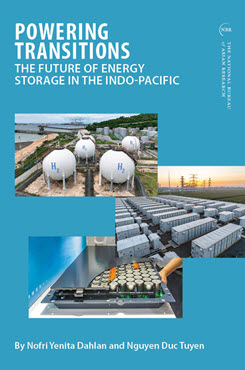Advancing Battery Energy Storage Systems (BESS) in the Asia-Pacific Opportunities, Challenges, and Strategic Pathways

EXECUTIVE SUMMARY
MAIN ARGUMENT
The global shift toward clean energy is accelerating, with the Asia-Pacific region emerging as a key player in the energy transition. In recent years, countries across the region have rapidly expanded their deployment of renewable energy, particularly solar. This trend is driven by falling technology costs, supportive policies, and growing access to international climate finance. However, the variable nature of solar and wind energy has underscored the critical need for energy storage solutions to ensure grid stability and reliability. BESS are now central to enabling a flexible, resilient, and low-carbon power system. The Asia-Pacific is projected to lead the global BESS market by 2026, with China, Japan, India, and Australia at the forefront. BESS deployment is thus a critical enabler of the Asia-Pacific’s clean energy transition, and strategic policy action is essential to scale the adoption of such systems in a way that enhances energy security, grid resilience, and low-carbon development.
POLICY IMPLICATIONS
- To best utilize BESS in achieving the clean energy transition, governments should establish clear and stable regulatory frameworks to de-risk BESS investments.
- Expanded public-private financing mechanisms to lower capital costs and scale deployment can and should play a key role in facilitating BESS development and adoption.
- As BESS gains greater usage, regional cooperation for BESS supply chains, standards, and cross-border technology transfer will be essential.
Nofri Yenita Dahlan is Professor of Electrical Engineering at Universiti Teknologi MARA and Director of the Solar Research Institute in Malaysia. Dr. Dahlan is also a Nonresident Fellow at the National Bureau of Asian Research.